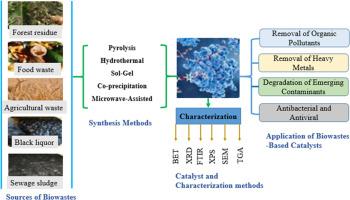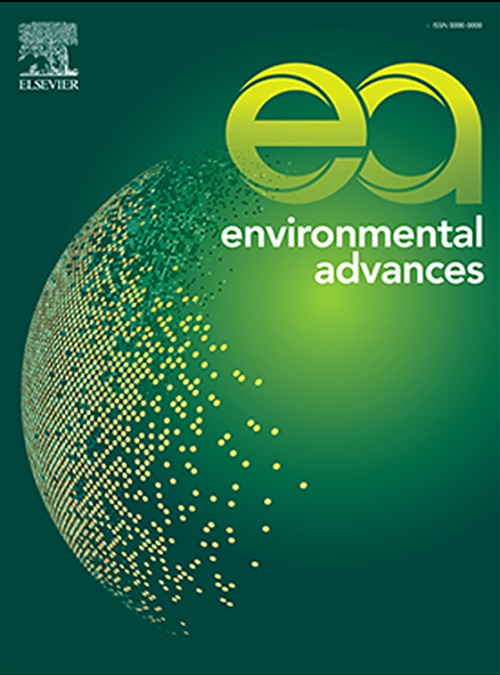Biowastes as sustainable catalysts for water treatment: A comprehensive overview
Q2 Environmental Science
引用次数: 0
Abstract
Water purification remains a critical global challenge that requires innovative and sustainable solutions. This review highlights the transformative potential of catalysts derived from biowaste for water treatment, offering eco-friendly and cost-effective alternatives to traditional methods. Agricultural residues, food waste, and biomass are converted into efficient catalysts through processes such as pyrolysis, hydrothermal carbonization, and chemical activation. These catalysts enable the removal of heavy metals, organic pollutants, and emerging contaminants through adsorption and oxidation mechanisms. They address both waste management and water treatment needs, aligning with circular economy principles by promoting resource recovery and sustainability. Integrating advanced technologies, such as membrane filtration and advanced oxidation processes, further enhances the efficacy of these catalysts. Additionally, artificial intelligence and machine learning provide tailored solutions for optimizing catalyst design and enabling real-time monitoring. Despite challenges related to scalability, stability, and reusability, strategies such as functionalization, hybridization, and the incorporation of computational tools offer pathways for improvement. This comprehensive review underscores the economic and environmental benefits of biowaste-based catalysts while identifying future research directions to advance this promising technology. It emphasizes the importance of green innovation in sustainable water purification.

生物废物作为水处理的可持续催化剂:综合综述
水净化仍然是一项重大的全球挑战,需要创新和可持续的解决方案。这篇综述强调了从生物废物中提取的催化剂在水处理方面的变革潜力,为传统方法提供了环保和经济的替代方案。农业残留物、食物垃圾和生物质通过热解、水热碳化和化学活化等过程转化为有效的催化剂。这些催化剂能够通过吸附和氧化机制去除重金属、有机污染物和新出现的污染物。它们解决了废物管理和水处理需求,通过促进资源回收和可持续性,与循环经济原则保持一致。结合先进的技术,如膜过滤和先进的氧化工艺,进一步提高了这些催化剂的功效。此外,人工智能和机器学习为优化催化剂设计和实现实时监控提供了量身定制的解决方案。尽管存在与可伸缩性、稳定性和可重用性相关的挑战,但诸如功能化、杂交和结合计算工具等策略为改进提供了途径。这篇综述强调了基于生物废物的催化剂的经济和环境效益,同时确定了未来的研究方向,以推进这一有前途的技术。它强调了绿色创新在可持续水净化中的重要性。
本文章由计算机程序翻译,如有差异,请以英文原文为准。
求助全文
约1分钟内获得全文
求助全文
来源期刊

Environmental Advances
Environmental Science-Environmental Science (miscellaneous)
CiteScore
7.30
自引率
0.00%
发文量
165
审稿时长
12 weeks
期刊介绍:
 求助内容:
求助内容: 应助结果提醒方式:
应助结果提醒方式:


